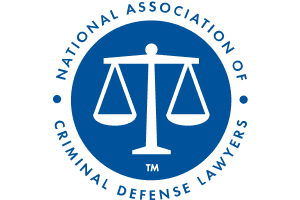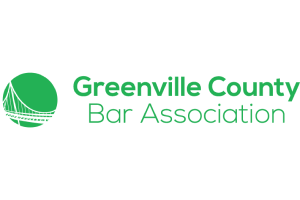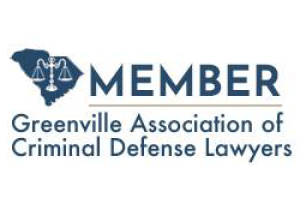Over 100 Years
Assault and Battery
South Carolina has various degrees of assault and battery charges ranging from third degree (least serious) to high and aggravated (most serious). Assault and battery in the second or third degree are classified as misdemeanors while assault and battery 1st degree and high and aggravated are felonies. The nature of the injury a victim suffers or could have suffered largely determines which degree of assault and battery is charged. To read more about these types of charges click here.
| Charge | Felony or Misdemeanor | Penalty |
| Assault and Battery High and Aggravated Nature (ABHAN) | Felony | Up to 20 years |
| Assault and Battery 1st Degree | Felony | Up to 10 year |
| Assault and Battery 2nd Degree | Misdemeanor | Up to 3 years and / or up to $2,500 |
| Assault and Battery 3rd Degree | Misdemeanor | Up to 30 days and / or up to $500 |
What Does Assault Mean Under SC Criminal Laws?
The crime of assault in the Palmetto State occurs when a person commits an act that puts another person in reasonable fear of harmful or offensive contact. The most common (and the least serious) is the misdemeanor crime of third-degree assault in South Carolina.
The Battery charge meaning. The crime of battery occurs when the accused person has inflicted harmful contact or has made some type of offensive contact with a victim. For example, intentionally spitting on another person is a battery.
More information about Battery Law. Physical injury is not a required “element” of battery but is usually part of the reported fact patterns for these crimes. By way of example, if an intoxicated male in a public establishment walked up to a female bar patron and touched her breast or buttocks, this is a battery.
A person accused of either of these crimes may be able to assert that her or his conduct was carried out in “self-defense” can defend themselves by claiming self-defense or that they were falsely accused.
In summary, several different “ways” exist to run afoul of SC laws on assault or battery. If you injure someone, attempt to injure someone, or cause someone to fear that you will injure them, you can be charged with assault and/or with a battery crime.
Do I Need a Criminal Lawyer Near Me to Defend My Case?
Yes, you do. Any assault in the third-degree cases can constitute a blemish on your lifetime criminal record. Top criminal attorneys will work toward getting a lesser offense of some type or a dismissal, to avoid a 3rd degree assault conviction.
You always want to try to get a dismissal or a diversion for any first-time assault charge. Such favorable “deals” are always less likely for repeat offenses in the future. Therefore, a new battery or assault charge could dramatically alter available “deals” or punishments in any future, similar misconduct.
Fighting first time assault and battery charges with experienced legal counsel is the wise choice. Third-degree assault and battery crimes can still torpedo future objectives and plans, including possibly stopping your ability to travel abroad for college “study abroad” trips, or to even be admitted to certain conservative colleges.
Many people think that since a 3rd degree assault or battery is a class A misdemeanor that she or he will not need to hire a law firm. This is almost always a bad decision.
Since you do not get to have a “do-over” if you screw up your case, hiring private legal counsel or (if you qualify as being indigent) having a public defender appointed by your court judge is the wise choice. Both misdemeanor assault and battery charges can create a very negative criminal record that will affect job options and create a criminal history that can affect your gun rights and other issues, such as traveling abroad.
What Are the Different Levels or Classifications of Assault and Battery?
There are four different degrees of assault and battery in South Carolina. Listing these in order of their most common occurrence and bringing the least punitive penalties we have four (4) specific types of assault and battery crimes which are part of South Carolina criminal laws:
- Misdemeanor assault and battery in the third degree (also known as Simple Assault or Simple Battery) occurs when a person unlawfully “batters” (injures) another person (or threatens to injure another person with the present ability to do so, which is the crime of assault).
- The misdemeanor crime of assault and battery in the second degree will be when a person unlawfully injures (battery) or attempts to injure (assaults) another person and causes moderate bodily injury to that person. This more serious assault and battery 2nd degree criminal charge also includes a criminal offense when the alleged perpetrator non-consensually touches the private parts of another person.
This crime can occur by reaching under clothing or reaching inside clothing. In the alternative, the crime occurs when the offender touches or gropes those private areas by touching that area of the victim’s clothing which are over or adjacent to those private body parts.
- First degree assault and battery (a felony crime) occurs when a person unlawfully injures (via battery) another person by a method or means which is likely to produce death or great bodily injury (such as by possibly causing loss of limb, loss of an eye, scarring or broken bones). For such crimes, our South Carolina lawyers for criminal offenses will seek to lower the felony to a misdemeanor, for a lesser included offense of assault 2nd degree.
The assault and battery 1st degree charge includes any injuries incurred during the commission of a robbery or kidnapping. First degree battery charges can also arise from any non-consensual touching of the private parts of another person, if done with a lewd & lascivious intent.
- South Carolina’s more serious A & B felony crimes are for assault and battery of a High and Aggravated Nature (which is abbreviated within the criminal justice world as “ABHAN”) is considered a lesser offense of attempted murder and includes grievous bodily harm to the victim. A serious felony aggravated battery conviction will carry a very severe state prison sentence comparable to what might be handed down on an armed robbery, burglary, kidnapping or theft crime.
In South Carolina, Assault and Battery in the Second or Third Degree are classified as misdemeanors. Both Assault and Battery of a High and Aggravated Nature (ABHAN) and First-Degree Assault and Battery are classified as felonies.
Obtain a Consultation to See What Our Defense Lawyers Can Do for You
When you retain a criminal law professional, it needs to be a litigator who knows how to get a second degree assault charge reduced or dropped, or how to get a simple battery charge dropped (dismissed) or reduced. For your lawyer consultation, call our law office today. (864) 271-3535. You will be speaking with an experienced law partner at our SC law firm.










